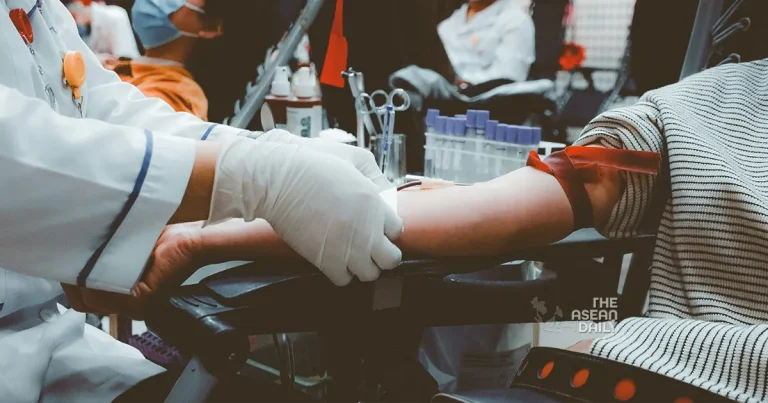21-3-2024 (SINGAPORE) A man in Singapore has been sentenced to three months’ imprisonment after admitting to providing false information during a blood donation drive conducted by the Health Sciences Authority (HSA). The 39-year-old Filipino man had falsely claimed that he had not engaged in any sexual activity with another man. However, subsequent blood test results revealed that he was HIV-positive.
The man pleaded guilty to one count of providing false information under the Infectious Diseases Act. The Ministry of Health (MOH) prosecutor, Tan Jun Ya, presented the case on March 21. According to the prosecutor, the incident took place on January 12, 2018, at a church located along Alexandra Road. The man had been a regular donor, having donated blood on ten previous occasions.
As part of the donation process, the man was required to complete a donor health assessment questionnaire and declaration form. The form included questions about the individual’s sexual activity, specifically inquiring about engagement with other males and sexual encounters with partners known for less than six months. The man answered negatively to both questions, declaring that his responses were truthful.
Furthermore, the man was informed about a confidential hotline that he could contact if he believed his blood should not be used for transfusions. However, he did not utilize this option. On January 25, 2018, during an interview with a doctor from the HSA Blood Services Group, the man maintained his earlier claim, stating that he had no risk factors as he had never engaged in sexual intercourse with another person.
It was not until February 20, during a subsequent interview with a public health officer from the National Centre for Infectious Diseases, that the man confessed to engaging in oral sex with a male masseur in Johor Bahru in November 2017. The MOH prosecutor highlighted this admission as a crucial turning point in the case.
In mitigation, the defense lawyer, Ashwin Ganapathy, acknowledged the potential harm that his client’s actions could have caused to public health and safety. However, Ganapathy argued that there was no evidence of any harm resulting from his client’s blood donation. The lawyer emphasized that the man had been working in Singapore at the time and had learned about the shortage of blood supply in local blood banks, prompting his desire to contribute.
Ganapathy stated, “Our client’s motivation in donating blood is simply that he wished to play his part in society. This was done purely out of his own goodwill to contribute and give back.”
Under Singaporean law, individuals found guilty of providing false or misleading information during blood donation face penalties of up to two years’ imprisonment, a fine of up to $20,000, or both. The court ultimately sentenced the man to three months’ jail time.




